Ensuring Pool Safety for Children with Autism
As we mark Autism Awareness Month, our focus turns to a topic of critical importance for families and communities: pool safety for children with...
4 min read
Vanessa Petros
:
Jun 16, 2023
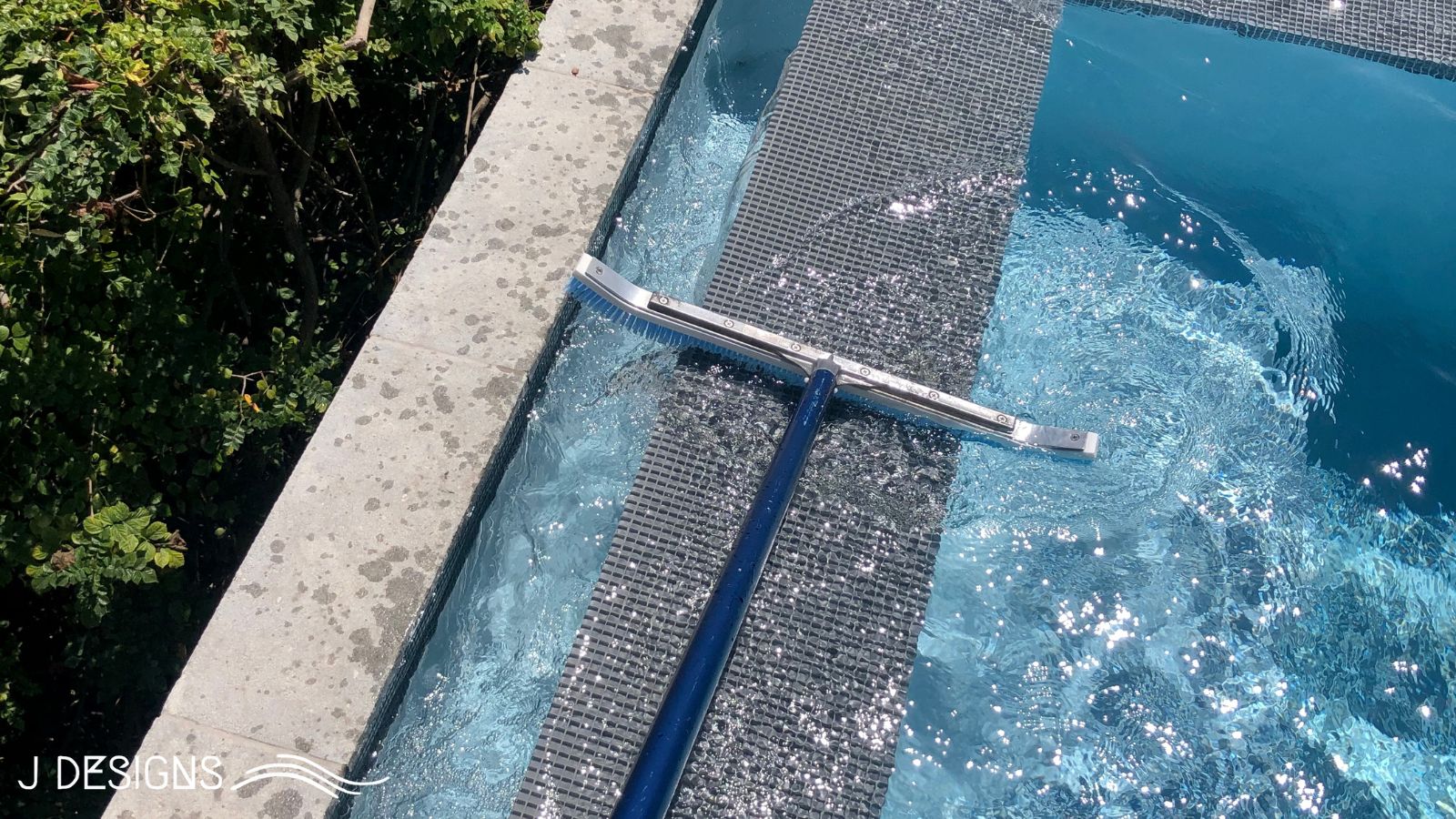
Running on empty: we all know we’re not supposed to do it and yet… we somehow always end up tap dancing on the edge of burnout some weeks.
Pools are a lot like people in this way; they won’t function properly for very long without regular and intentional TLC.
Imagine you and your partner have just returned to your property after spending the extended holiday season skiing in the majestic Swiss Alps. You’re back in sunny California and invite friends over for the first poolside dinner party of the new year. The fire pit is blazing, guests are eating bruschetta and bacon-wrapped dates, and the smell of spiced cinnamon mulled wine wafts through the air. All of a sudden, five guests leap out of the pool and shake off in disgust. Alarmed, you look into the water for the first time since before your trip and see that the water is cloudy and looks dirty.
Then it hits you: the pool technician you hired to service your pool had a scheduling conflict and couldn’t show up when you were out of town. The result? A murky pool and a brutally awkward moment to kick off the new year.
At J Designs Pool and Spa, we have over 15 years of experience in constructing concrete pools all across California and educating our customers on how to stay on top of pool maintenance. Although we highly recommend concrete pools, our most valuable commodity is radical transparency.
As such, this article is going to shine a light on three common issues in maintaining concrete pools, while also detailing effective preventative measures.
Everyone knows that Calcium is a powerhouse for keeping our bones strong, but a high calcium deposit in your pool water can lead to tile discoloration.
Calcium is present in the tap water that fills your pool, but an excess amount of calcium creates hard water. As the hard water sits against the tile, calcium builds up on the tile even once the water evaporates. If you know you have hard water, you should regularly use a bristle brush to scrub any buildup off. Otherwise, when the excess calcium sticks to the pool surface and the water evaporates, green and brown stains are left that tarnish the pool’s beauty.
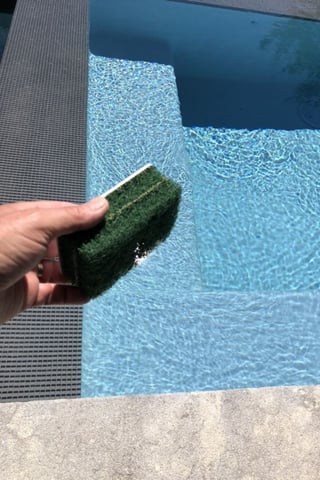
You can be vigilant and check for calcium hardness using several testing methods:
When you stay on top of preventing excess calcium from getting in your pool water, you’ll save your tiles from unsightly discoloration.
Many pools are sanitized using a mixture of chemicals, but when these chemicals are unbalanced, the collateral damage erodes the pool’s concrete and plaster surfacing.
Over-sanitizing the pool with more chemicals can cause the concrete to erode or crack, leading to extensive repairs to keep the foundation intact. To keep the pool pH in check, proper filtration is necessary. Even so, human error happens and chemical imbalances get missed. One way to circumvent this problem is by setting up automated chemical sensors that dispense chemicals in small doses through pumps. This self-sustaining equipment removes the conundrum of human error and takes this maintenance responsibility off your hands.
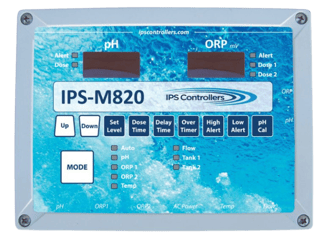
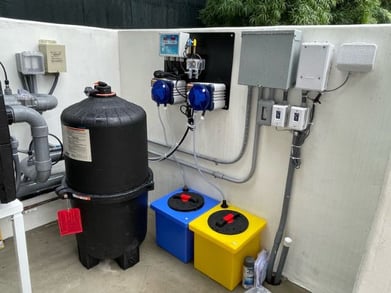
Similarly, unbalanced pH eats away at the pool’s surfacing as well.
A common misconception is that a concrete pool is rough to the touch. The average person associates a concrete pool with roughness, but this association is misguided. The pool shell itself needs to have a very rough surface for the surface, or finish, to attach to, but the pool surfacing (plaster finish made of cement or pebbles) needs to be very smooth to the touch. A concrete pool should not feel rough, and if it is, the pool contractor did not fulfill one of their major responsibilities in the construction process: educating you on how to maintain the pool’s top coat.
The pool chemical balance can wreak havoc on your pool’s plaster. A high pH can cause the pool’s surface to be overly rough, leaving feet vulnerable to cuts and scrapes. The plaster finish will naturally decay over time through imbalanced chemical conditions, but there are proactive measures every homeowner must be aware of to prevent this from happening.
The pool’s soft surface is not supposed to be eroded down to the rough concrete infrastructure, but that is the inevitable result if there is a lack of chemical maintenance and testing tips given to the homeowner early on. You can keep this erosion from happening by brushing your pool weekly with a quality pool brush. Additionally, you can also install an automatic pool cleaner to run daily to prevent high chemical buildup.
One way to avoid these issues surrounding aggressive chemical sterilization is to install an ozone generator. By providing oxygen to your pool, Ozone kills most, if not all of the bacteria in your pool.
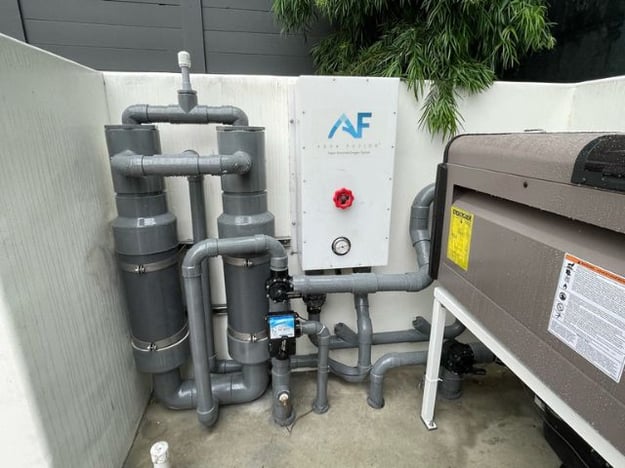
It’s crucial for every concrete pool owner to do their due diligence in managing their pool pH; balanced water creates positive ripple effects in the pool’s longevity.
Your pool’s water flows through the filter, but when the filter is clogged, things get murky.
Debris can end up in the pool filter after it gets through the pool’s skimmer and strainer, which catch larger debris before it can make it through to the filter. The smaller debris that gets past the skimmer and strainer inevitably ends up in the filter. This is problematic because the purpose of the pool filter is to remove debris and dirt from the water so that clean water is circulated back into the pool through the plumbing. These filters contain cartridges that need to be cleaned and replaced every 3-5 years. However, we recommend that the filter's cartridge be replaced every 3 years since there is a higher amount of smog and wind in Los Angeles, which extends the debris at a faster rate.
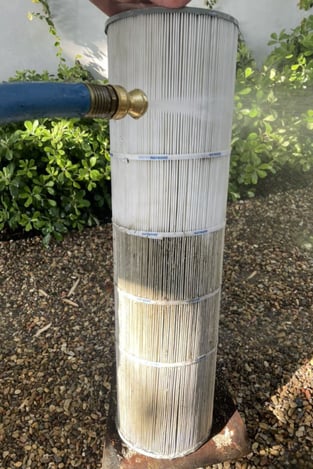
There are instances where the filter itself might need to be replaced, but initially, you may just need to ensure it is cleaned out properly first. There are a few signs that indicate that this may be the case:
After reading this article, you can understand that when your pool's inner mechanics and various parts aren’t serviced often enough, the pool will inevitably run on fumes until a major breakdown happens.
At J Designs Pool and Spa, we’ve spent 15 years seeking continuous improvement in our education of pool maintenance and proactively teaching our customers how to ensure their pool functions at its optimal level.
We believe it’s very important that customers are empowered with knowledge about how their pool works and what regular care it needs to thrive. That way, minor issues are recognized and handled confidently before the pool suffers more consequential disrepair.
Not ready to speak to a certified pool professional just yet? No rush; great things take time! Until then, we want to make sure you’re in the know; click below for related articles:
HOW TO CLEAN YOUR POOL: 4 BASIC STEPS TO DIY MAINTENANCE
5 COMMON MISTAKES FIRST-TIME POOL BUYERS MAKE (AND HOW TO AVOID THEM)

As we mark Autism Awareness Month, our focus turns to a topic of critical importance for families and communities: pool safety for children with...
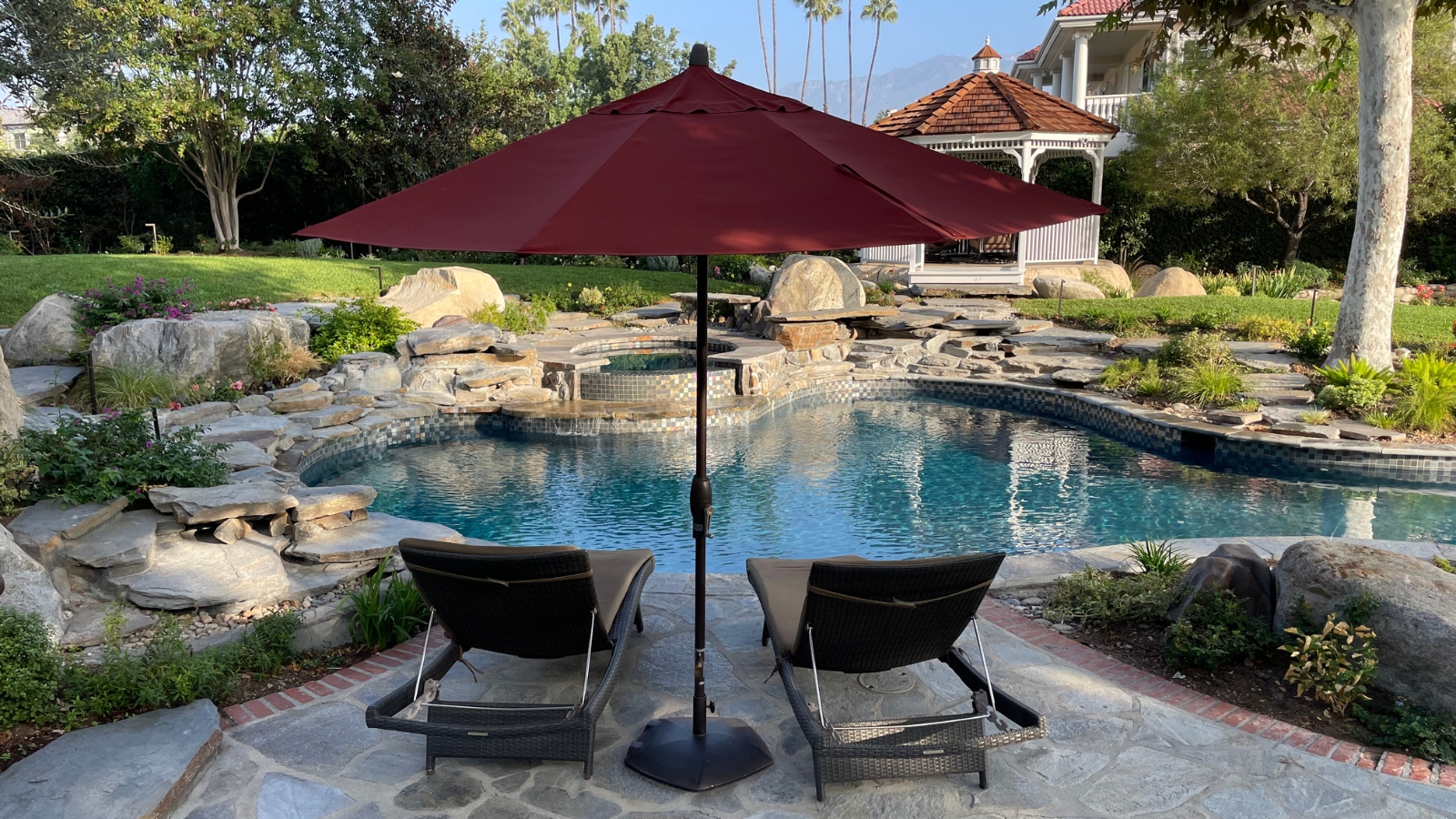
Imagine transforming your backyard into a luxurious oasis, a personal retreat where every detail reflects your unique style and enhances your home's...
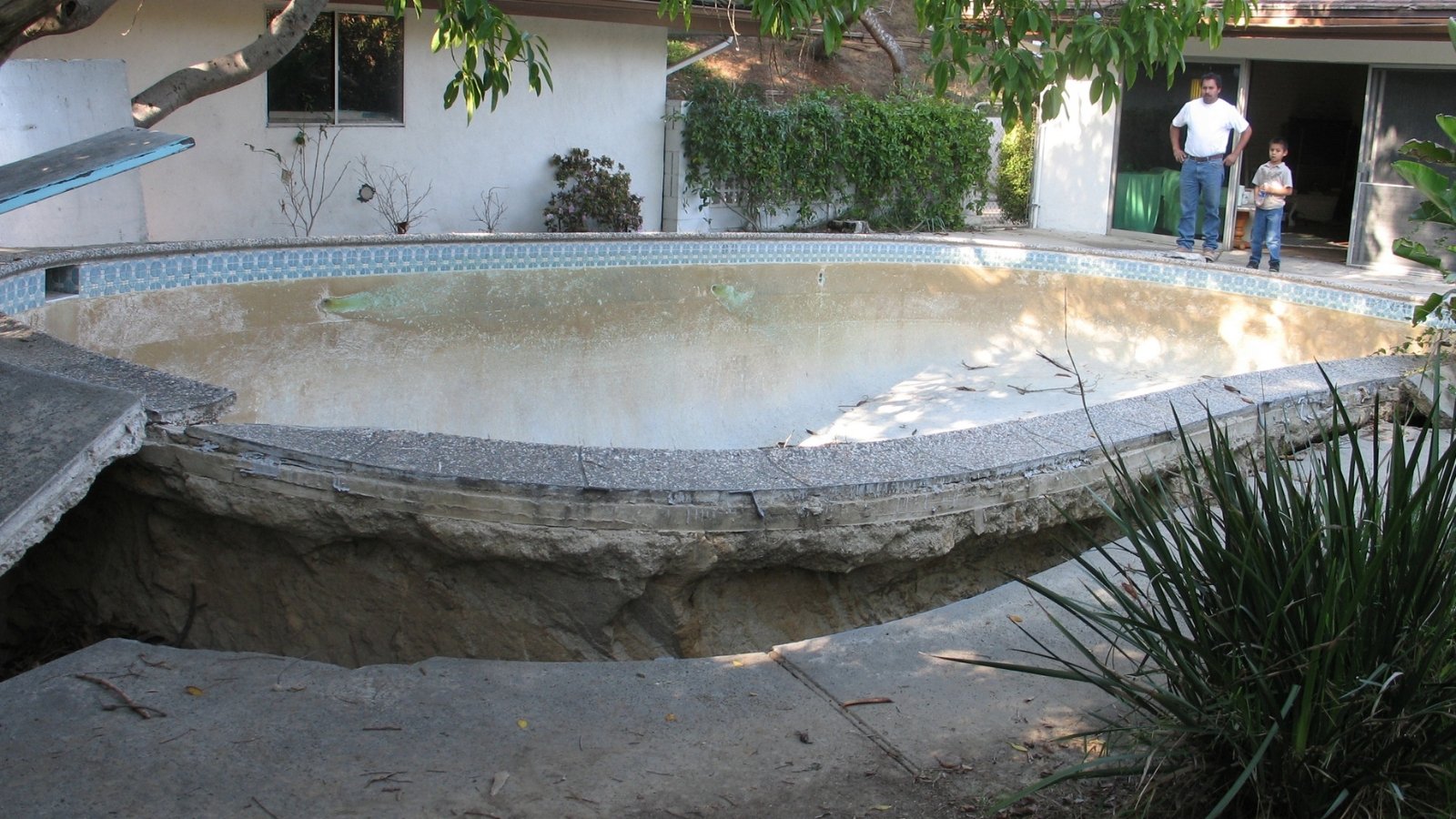
For many homeowners, whether to drain a pool is daunting, especially in the aftermath of heavy rainfall or when faced with the challenge of...